#Former King of Greece
Photo

By the standards of the hapless Greek monarchy, Constantine II, the last king of the Hellenes, who has died aged 82, led a comfortable life in exile after a brief and turbulent reign. Of the seven Greek monarchs of the 19th and 20th centuries, three were deposed, one assassinated, two abdicated and one died of septicaemia after being bitten by a barbary ape in the royal gardens.
The Glücksburg monarchy was German-Danish in origin, imposed on Greece in the 1830s. During prolonged wrangling after Constantine’s deposition, the Greek government refused to give him a passport until he acknowledged that he was Mr Glücksburg, whereas he insisted he was just plain Constantine. As the last of Greece’s deposed monarchs he escaped lightly. But decades of exile in London, as one thing the Greeks did not want back from Britain, were not how he would have chosen to spend his life.
In Hampstead Garden Suburb, Constantine lived in some state – apparently supported largely by donations from Greek monarchists – and visitors were expected to address him as Your Majesty. He was included in many invitations by the British royal family, to whom, like most of Europe’s monarchies, he was related. Prince Philip was his father’s first cousin, King Charles III his second cousin and Queen Elizabeth II a third cousin, and he was a godfather to Prince William. His wife was a Danish princess, the sister of Denmark’s Queen Margrethe II, and his sister Sofía became queen of Spain. Only in Greece was he unrecognised, and he was not allowed to return to live there until 2013, long after the events that had toppled him from the throne after a military coup in 1967 and resulted in the abolition of the monarchy in Greece in 1973.
In many ways, Constantine was a victim of the vicious political infighting that has characterised Greek politics and its society for much of the period since the second world war. It perhaps needed a stronger, more experienced and more resolute approach to surmount the crises of his three-year reign than the young man in his early 20s could manage. In later life he said in an interview that he might have liked to be an actor or a journalist, but his fate was to spend his life as an ex-king, harried by Greek politicians and in turn harassing them in a prolonged legal fight for compensation for his family’s lost property, eventually through the European court of human rights.
Born in Athens, Constantine was the son of the Greek crown prince, Paul, the younger brother of King George II, and his German-born wife Princess Frederica, and was taken into exile as a baby following the Italian and then Nazi invasions of the country in 1940-41. His early years were spent first in Egypt and then in South Africa, before the family returned to Greece following the referendum that restored George to the throne in 1946. George died the following year, and Paul became king.
Constantine was educated at a private high school in Athens, modelled on the same lines as the German educationist Kurt Hahn’s principles at Gordonstoun, and afterwards attended Athens University to study law. A keen sailor, Constantine was a member of Greece’s winning sailing team at the 1960 Rome Olympics – the country’s first gold medal in nearly 50 years.
He succeeded to the throne aged 23 on his father’s death in March 1964, becoming head of state in a country that had not got over the civil war between communists and the Greek government of 1946-49, and where political tensions and divisions continued to run deep. The CIA, desperate to avoid Greece falling into communist hands, was also active in Athens. Greece was a strategic pawn between the US and the Soviet Union, each anxious to pull the country into its sphere of influence in the eastern Mediterranean. At the same time, it was attempting to modernise with social and economic reforms as an associate member and applicant to join the Common Market.
The month before Constantine came to the throne, a general election had produced a centrist – moderate, leftwing – government under George Papandreou, following 11 years of rightwing government. Within a year, relations between the king and his prime minister were breaking down. Conservative army officers were alarmed by a perceived leftwards drift among the junior ranks, who were supported by Papandreou’s Harvard-educated son Andreas. When George Papandreou announced that he would take over the defence ministry himself, Constantine refused to allow him to do so, and the government resigned. In the hiatus that followed, the king attempted to appoint a government without holding an election and was accused of acting unconstitutionally.
When elections were finally called in April 1967, the likely re-election of Papandreou was forestalled by an army coup led by colonels. Constantine initially appeared to go along with the insurgents. He argued later that he had had no choice as the palace was surrounded by army tanks, but there were also persistent suggestions that he had been urged by the American embassy to do so in order to avoid another radical government. Many Greeks and civilian politicians never forgave the king for acceding to the coup, but within months he attempted a counter-coup of his own, fleeing to loyalist troops in the northern city of Kavala that December in an attempt to create a rival military support and force the junta to resign.
The operation was poorly organised and, although the air force and navy declared their support, the army and its officers rallied to the coup leaders. Support for the king melted away within 24 hours. Fearing bloodshed if it came to a military confrontation, Constantine and his family fled into exile, first in Rome and then a few years later in London.
There was no going back for the king. The junta, led by Colonel Georgios Papadopoulos, brutally consolidated their regime using censorship, mass arrests of opponents, torture and imprisonments, and were not going to reinstate Constantine after his attempted coup. When monarchist navy officers unsuccessfully attempted to overthrow the colonels in June 1973, Papadopoulos declared the country a republic, endorsed subsequently in a plebiscite widely assumed to have been rigged.
Nonetheless, when the regime fell following the Turkish invasion of Cyprus in 1974, to be succeeded by a civilian government, a further referendum was held to determine whether the king should be restored. Constantine was not allowed to return in order to campaign on his own behalf, though he was allowed to broadcast an address from London in which he apologised for his previous errors. But his maladroit interference with the civilian governments before the coup was held against him and the outcome of the vote in December 1974 was heavily in favour of a republic: by 69% to 31%.
Thereafter, for decades, Constantine was prevented from visiting Greece except briefly and on rare occasions: for his mother’s funeral in 1981 and for an attempted holiday in 1993, when he found his yacht was constantly harried by torpedo boats and aeroplanes. The following year, the Greek government revoked his citizenship and passport and seized the royal family’s property. “The law basically said that I had to go out and acquire a name. The problem is that my family originates from Denmark and the Danish royal family haven’t got a surname,” he said, adding that Glücksburg was the name of a place not a family: “I might as well call myself Mr Kensington.”
In 2000, the court of human rights found for the king in relation to the property, though it could only order compensation, not the return of his extensive estates nor the royal palace at Tatoi and awarded him only 12m euros (around £10m), rather than the 500m he had asked for: a reduction that the Greek government counted as a triumphant vindication. It nevertheless took another two years to pay the money and, when it did so, the government took it from its extraordinary natural disasters fund rather than general reserves. In retaliation, Constantine used the money to set up a charitable foundation in the name of his wife to assist Greeks suffering from natural disasters. He said: “I feel the Greek government have acted unjustly and vindictively. They treat me sometimes as if I am their enemy – I am not the enemy. I consider it the greatest insult in the world for a Greek to be told he is not a Greek.”
Generally, while expressing a wish to be allowed to live in Greece, which was granted in 2013, Constantine seemed equable about his fate and did not attempt to regain the throne. “All I want is to have my home back and to be able to travel in and out of Greece like every other Greek. I don’t have to be in Greece as head of state. I am quite happy to be there as a private citizen,” he told the Sunday Telegraph in 2000. “Forget the past, we are a republic now. Let’s get on with the future.”
Constantine is survived by his wife, Princess Anne-Marie of Denmark, whom he married in 1964; and their three sons, Pavlos, Philippos and Nikolaos, and two daughters, Alexia and Theodora.
🔔 Constantine II, former King of Greece, born 2 June 1940; died 10 January 2023
Daily inspiration. Discover more photos at http://justforbooks.tumblr.com
44 notes
·
View notes
Text
.
#Last night my mom turned to me very serios and asked:#“Did you know the (former) king of Greece had died?”#and I said: “Yeah I heard about it. Did anyone from our royal family attend the funeral?”#and she went “I don’t know” so I searched for the funeral on YouTube and found it.#I was surprised to see Radu - Margareta’s husband - attend the funeral by himself.#not that it matters but#Constantine was Margareta’s uncle and her father’s - our late king’s - first cousin#anyway I was glad to see someone from ours attend#although Constantine did not have the best reputation while he was alive and rightfully so#the crowd went wild when Sofia of Spain arrived#our late king was her favorite cousin#or so they say#my entries
3 notes
·
View notes
Text
According to royal reporter Richard Palmer, the Princess of Wales diagnosis was why Prince William cancelled his attendance at the memorial service for the former King of Greece.
#daffodil#Princess of Wales#ktd#kate middleton#catherine middleton#Princess Kate#princess catherine#the princess of wales#brf#royalty#Women#health#British monarchy#british royal family#royal#european royalty
96 notes
·
View notes
Text
Next in Line (IF) - Updated Aug 2023
Demo (August 3, 2023) | Discord | Ask Me Anything | Tag List | Kofi | Patreon | TAGS TO BLOCK - TW
Demo Updated: August 3, 2023 (Chapter 2, Part 1)

You're next in line for the throne of Castelon, a fictional country loosely based on different periods of history, such as Ancient Greece, Ancient Rome, and periods of England.
A 10-year war with your country's main adversary, Arandale, recently ended. Then your father, King Percival was assassinated. After his assassination, your twin, Prince James abdicated. Return home after 5 years and decide what kind of Harbinger you will be.
Prepare to step into a story of betrayal, love, and trust. Can you navigate your royal duties, solve your father's murder, and find love (or friendship) at the same time? Or, will the Gods withdraw their blessings from you?
Demo features:
Play as male, female, non-binary;
Prologue, Chapter 1, Chapter 2 Part 1;
Shape your MC's future and some of their past.
Pursue romance and/or friendship with 4 different characters.
Choose 1 of 3 Family Mottos.
Get a taste of "Attributes", which will unlock choices throughout the game. More Attributes will be available in the coming chapters.
Choose a patron god or goddess (optional).
Choose a pet (who you'll meet in chapter 2).

The final game will be rated Mature. The current version is rated 16+. Please note all of the below content is not in the demo but planned for the finished game. NSFW asks are tagged #nsfw so please block if applicable!
CW: suggestive language, references to war and the effects of war, death, references to death, exploration of grief, curse / swear words, possible violence, optional sexual content.

Next in Line features four romance options. View more characters + RO's ArtBreeder images by clicking here.
Sir Constantine Dimas | M, 26 years old, Taurus, #constantine dimas
Constantine is the best friend of your twin brother, James, and a Knight in Castelon's Elite Guard. He is fiercely loyal to your family and fought alongside James in the Arandale War. Like you, he finds amusement in teasing your brother.
"You're not too different from your twin, both reckless royals, so you probably need someone to care for you."
F. Faramund | M or F, 22 years old, Aquarius, #f faramund
Whether F was your first love or your ex-best friend, they broke your trust and disappeared. Now, they're back and seemingly apologetic. Bury the hatchet, rekindle your former relationship, or walk a different path altogether.
"The stars guided me back to you and I will stay as long as you allow."
Felix Faramund | M, 24 years old, Aries, #felix faramund
Felix is F.'s older brother and was someone you once considered a friend. Like, F., he's returned to Castelon. Unlike F., he can be quick to anger and he's not afraid to speak his mind. He can read the room, he just doesn't care. You can romance Felix, even if you loved F.
"Just know, I'll fight for what I want."
Lady Margaret | F, 22 years old, Gemini, #lady margaret
The mysterious Lady Margaret is a noble businesswoman who enjoys observing from the shadows. She's close to your mother, Queen Vivian. Although she is slow to trust others, those who earn her trust will find themselves in the company of a powerful and loyal ally.
"I can think of many ways to consume your time."
#new intro post#nextinlineif#interactive fiction#royal romance#if wip#demo out now!!#next in line demo#AHHHHHH#cscript#twine sugarcube#twine game
1K notes
·
View notes
Text
Apollo, Leto, Hera and Zeus: a story of dragons, families, reputation and politics
The Homeric Hymn to Pythian Apollo presents a pretty cool story about the Most Greek of the Greek Gods, He who shoots the Silver Bow, the god Apollo, whose birth is recounted in the hymn whose main characters act in a complicated theological, familial and political web. The gods and the monster are part of the complex game of politics and wit that the chief gods like to play, and each one of them has their set of cards to play.
Leto and Apollo: Devoted Mother and Beloved Son
Apollo is chronologically Leto’s second child, born on the island of Delos, which is (depending on who you ask) also the body of her sister Asteria, who turned into an island to escape the advances of the King of the gods. The place of birth of the baby god places Leto’s delivery under a strictly familial context and the protection of every matron figures in his life, since even his sister Artemis is said to have helped to bring him to the light. Leto did everything she could in order to be able to give birth to her children, travelling to every island of mainland Greece to look for a suitable place. The relationship between Leto and her son is one of deep love and devotion, the same one that brought him into the world, and the one that he would defend with all his divine strength.
Apollo and Zeus: Mirrored lineages and Decked Destinies
Apollo’s story is almost a perfect mirror of Zeus. Their stories are eerily similar when put in juxtaposition. Both of them are the sons of the almighty ruler of the universe, born in difficult circumstances, with Zeus being born at risk of being eaten by Kronos and Apollo being born under Hera’s restriction, who grow up to have a large number of both male and female lovers and become beloved by the Ancient Greeks who build them a lot of temples, one of them being famous for an oracle (Dodona for Zeus, Delphi for Apollo). These two gods cement their power by defeating a monster with whom the goddess Hera has a link with (Typhon and the Dragoness to whom Hera have Typhon to be raised by, as well as to chase the pregnant Leto). However, one element is missing from this almost perfect copy of the King of the gods: Apollo never succeeds his father by the classic overthrowing myth of the succession cycle, both because of the fact that Zeus reigns supreme over the universe and is its definitive leader, but also because of Hera’s meddling (I’ll discuss that later). As a result, Apollo is an imperfect mirror of his father, a reflection but not a twin of Zeus, and as such he does not get to make decrees over the whims of fate like Zeus Moiragetes, but instead merely speaks his prophetic will and gets most of his prophetic powers from him.
Hera and Leto: Political Rivals in the Succession Game
Leto was Zeus’s sixth wife, the one that came just before Hera, yet she conceived her children after her separation from Zeus, a feat which would make any former queen proud that she had not been left behind and is still desirable enough for the king to grant her favour, and would allow her a special place within his heart, a place special enough for her to get privileges and share some of them for her children. This almost concubinal relationship between Zeus and Leto is a direct threat to Hera’s rank as sole queen and equal of Zeus, which led her to prevent Leto from getting the privileges she could get if she ever had children, as it would tie her to Zeus’s household forever, as well as make him feel more kindly towards any children they may sire by forbidding her from giving birth anywhere in mainland Greece, making the relationship between Hera and Leto seem to be more akin to political rivalry and defense of her title than just plain jealousy which people usually associate with Hera.
Hera and Apollo: Branded Forevermore
Apollo, the mirror of Zeus, the beloved son of Leto, was born from a loophole in Hera’s decree, and probably the best possible god to designate as an heir for Zeus. However, the birth of this very important and powerful deity is a direct threat to Hera’s position, as Zeus may choose to look more kindly upon him and his mother than her and her children, which is the exact same reason as to which she cursed Leto in the first place. Through the trial and humiliation of being rejected by every place on earth attached to the sea floor and having the previous wife of Zeus give birth on a barren rocky island while simultaneously being ruthlessly chased by a monster, Leto is publicly declared obsolete by Hera and any children that may come by her and Zeus is immediately branded as illegitimate, a blazing and painful reminder of the one whom Zeus chose to share his bed with and of the definitive queen with divine prerogatives that entitle her to declare who enters Olympus or not. Apollo enters Olympus eventually, but not before slaying the monster sent by Hera to hunt down his mother and raise the dreaded Typhon who would serve as the ultimate challenge to Zeus’s rule, effectively taking revenge on him for the transgression that was the lone birth of Athena, and reaffirming his power in that special way only she knows.
19 notes
·
View notes
Text




16 January 2023
Princess Anne and Sir Tim Laurence arriving for the funeral service for former King Constantine II of Greece, Metropolitan Cathedral, Athens
223 notes
·
View notes
Text
An adviser to Russian President Vladimir Putin has claimed that Ukraine’s military will become “unified through gay sex” like the Greek Spartans.
While the comment may seem bizarre, it’s just the latest example of Russian authorities using anti-LGBTQ+ nationalist sentiment to justify its unprovoked war against Ukraine.
“Military theorists and historians know which army in Greece was the strongest, remember? The Spartans! They were united by a homosexual brotherhood. They were all homos. These were the politics of their leadership. I think they are planning the same for Ukraine’s Armed Forces,” Sergei Markov, a former adviser to Putin, said while appearing on Russian TV, Newsweek reported.
Markov said the U.S. and Ukraine will use “neuro-linguistic programming” and other brainwashing techniques to turn Ukrainian soldiers gay against their will. In reality, there’s no evidence that psychological methods can change a person’s sexual orientation.
“They have an artificial political science fascism created by American and British political technologists. They will turn them into zombies, into cult members. I think they will force some to become homosexuals,” Markov claimed.
“These renewed troops of Ukraine’s Armed Forces, zombified and unified through gay sex, along with cult members ready to sacrifice themselves. This is what they’re preparing for us in the spring 2025,” he added.
There is some historical evidence to suggest that the Spartans of Ancient Greece may have encouraged homosexual activity as a way to encourage soldiers to stay in the military and fight for their partners’ lives. The evidence also suggests that Spartan soldiers were expected to age out of such activities after completing a certain stage of their military training.
The most famous gay military force in Ancient Greece was actually not Spartan but the Sacred Band of Thebes, an elite military force deliberately comprised of 150 gay or bisexual couples that defeated the Spartans and murdered both Spartan kings in a single campaign.
No wonder conservatives are so bent out of shape about LGBTQIA, they know their super-macho country music listening asses will get annihilated on the battlefield.
59 notes
·
View notes
Text
Flags of the Athenian Empire


These are the flags of the Athenian Empire. I couldn’t decide which I liked better, so I went with both of them. They come from a world where Athens won the Peloponnesian War. Following the defeat of Sparta, the Delian League was expanded to include the Greek colonies in Italy, the city-states in Anatolia and all of Greece. All of this new territory meant more treasure for Athens' coffers. Athens used much of this new-found wealth to expand its military and navy. The unification of the Greek city-states meant that the Macedonian Conquest never occurred, and Alexander the Great never came to power. Though it was still known as the Delian League, in reality, all of the city-states knew that they were now part of the Athenian Empire.
The threat of Persia was an ever-looming concern. Athens funded many rebellions against Persia in regions such as Egypt and the Levant. Eventually, Athens declared war on the Persian Empire and conquered it in short order. However, most of the territory was lost within a few generations. Athens also went on to conquer Carthage, the fledgling Roman Republic and expanded its territory into Gaul. Athens also expanded into Hispania and the British Isles, but never for too long.
Following this series of conquest Athens began to focus more intellectualism and the acquisition of knowledge. Many libraries and centers of learning were founded across the Athenian Empire. The Athenian Empire never truly fell, but over the years it did lose territory; at its smallest, it was comprised of Greece and Anatolia. However, Greek influence on language, art and culture is felt throughout its former empire and the world at large. In many ways, the Athenian Empire can be seen as the Western world's equivalent of China in terms of influence and culture.
The flags feature an owl clutching an olive branch, symbols of Athens patron goddess Athena. The colors of the flags are black and orange in reference to Ancient Greek pottery. The black on the first flag is also a reference to the black sails of Theseus, mythical king of Athens.
Link to the original flags on my blog: http://drakoniandgriffalco.blogspot.com/2017/09/flags-of-athenian-empire.html?m=1
#alternate history#flag#flags#alternate history flag#alternate history flags#vexillology#Athens#Athenian Empire#Flags of the Athenian Empire#Greece#ancient greeks#ancient greece#peloponnesian war#Delian League#athens greece
45 notes
·
View notes
Text
Hades as a protector of the city ⚔️🏛
In his book “Description of Greece”, the people of Elis stood out to Pausanias because:
1. They worshipped Hades under his real name, Hades’ name was feared and it was far more common to use alternatives such as Pluto, Klymenos (The renowned) and Chthonic Zeus (Zeus of the underworld) to refer to him
2. They worshipped him as the king of the dead, this in contrast to most cults devoted to Hades who worshipped his agricultural aspects and grouped him with Demeter, Kore or both
3. His temple was located in the city, most temples for agriculture deities were located outside the agora- This further reinforces that they were worshipping his chthonic aspect and not his agricultural one

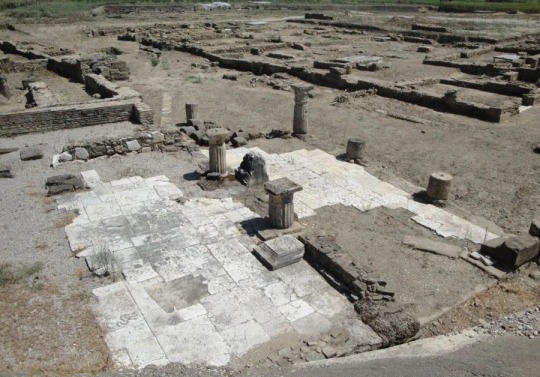
Left: The temple of Hades in Elis as depicted in Assassins's Creed. Right: The modern ruins of Elis
I want to talk about the myth that the people of Elis used to explain their devotion to Hades. It goes like this: Heracles wanted to attacked Elis and was allied with Athena, Hades exits the underworld, allies himself with Poseidon and Hera, and leads an army to protect Elis. In battle, Heracles strikes him with an arrow and Hades has to go to Olympus to be healed by Apollo. Heracles wins the battle and while the Eleans were rebuilding their city they also constructed a temple for Hades.
It is remarkable how casual the Eleans are with Hades, they call him ‘their friend’ and use his name instead of the more formal options. They also named a mountain after Hades’ former lover, Minthe and had a river called Acheron after one of the rivers in the underworld.
I find this myth so appealing because it’s rare to see a god putting themselves on the frontlines to protect mortals. Hades has nothing to gain from defending Elis, but he does it anyway because they’re his followers. This myth represents Hades not only as a protector of the agora but as a friend of humanity- and the ending where he fails, gets injured and asks for help just makes him so much more like us
Sources: “Worshipping Hades: Myth and Cult in Elis and Triphylia” by Diana Burton, Stockholm University Library
https://www.theoi.com/Cult/HaidesCult.html
https://www.theoi.com/Ouranios/Paion.html
#greek mythology#greek gods#hellenic polytheism#hellenic worship#hades deity#hades worship#hades devotee#hades cult
550 notes
·
View notes
Photo






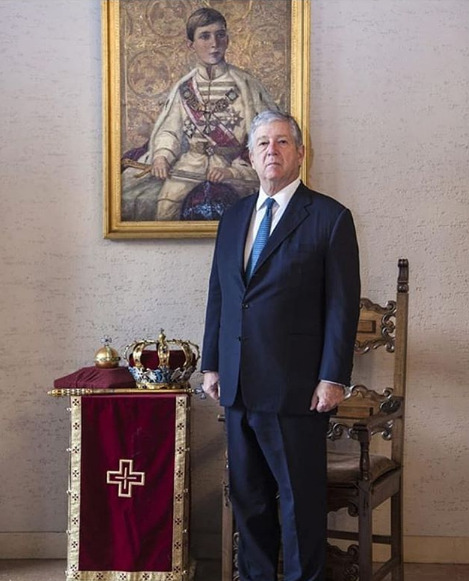


Alexander, Crown Prince of Yugoslavia
Born: July 17, 1945, Claridge's, Mayfair, London
Physique: Average Build
Height: 6′ 1″
Alexander, Crown Prince of Yugoslavia, is the head of the House of Karađorđević, the former royal house of the defunct Kingdom of Yugoslavia and its predecessor the Kingdom of Serbia. Alexander is the only child of King Peter II and his wife, Princess Alexandra of Greece and Denmark. He held the position of crown prince in the Democratic Federal Yugoslavia for the first four-and-a-half months of his life, until the declaration of the Federal People's Republic of Yugoslavia later in November 1945, when the monarchy was abolished. In public he claims the crowned royal title of "Alexander II Karađorđević" as a pretender to the throne.
The twice married with three sons, Alexander is known for his support of monarchism and his humanitarian work. He's another royal I spotted at His Majesty Charles III's coronation that I now want to do.
83 notes
·
View notes
Note
Is this the costume shop I've heard so much about? Do you happen to sell and Ancient Greek menswear? I've always admired the strong men in ancient Greece, they always looked so cool...
it's Greek to Me
I have what you are looking for but be warned, once you put it on all of your knowledge of current times will vanish, you will be nothing more than a Ancient Greek man.
You laugh as you go in back and put on the costume. As your body alters to fit your new ensemble your mind soon goes blank, soon you only know things about times from which you come.

In your time you were a Greek warrior, a former Gladiator hand picked by the king to lead his legion of men into battle. You look around, afraid of your new surroundings, doin the only thing you know how to do, you begin to battle and attack the things you don't understand. I begin having second thoughts as you begin destroying my store so i approach you and return knowledge of the future which calms you down. You exit the building still in character and unable to speak or understand English as you exit the building.
28 notes
·
View notes
Text

Hi. Today is the Ides of March, and I come to you not to defend Caesar but to contestualize his killers. Because I've noticed most people here are directly or indirectly influenced by William Shakespeare's play on the events, play that alters a few facts and presents Marcus Junius Brutus as the most sympathetic character of the entire mess for sake of drama, and forgoes ENTIRELY the historical context. Being Italian I grew up with MOST of said context, so allow me to present you with the series of civil wars that ended the Roman Republic.
The dominoes started being placed at the very start of the Republic, when, according to legend, the last king of Rome, Lucius Tarquinius Superbus (properly translated as Lucius Tarquinius the Fucking Arrogant - the English language doesn't have the right word to translate "superbus"), got the Romans so furious that they joined forces and chased him and his family out of town under the leadership of Publius Valerius and Lucius Junius Brutus (this name is important, remember it). No matter if the legend has any basis in history, the Roman here started LOATHING the King, and while the office was maintained as the Rex Sacrorum (King of Sacrifices) for its religious significance it lost all its political power, and every year the holder would be ritually chased out of Rome as a reminder of what happened to Tarquinius, a tradition that apparently continued all the way until the office's abolition under EMPEROR TEODOSIUS THE FIRST (the Romans loved tradition and could hold a grudge for a long time). Also, the Romans reformed their government around the Senate, whose families, the Patricians, formed Rome's nobility, so that they could properly rule their city, the villages and towns directly subject to it, and the largish alliance centered around Rome, accounting for any foreseeable future growth of said alliance. Keyword: FORESEEABLE. Because the founders of the Republic apparently anticipated Rome's control to expand at most from the Alps to Apulia, maybe Sicily if the local Greek colonies decided to pick a fight and their friends in Carthage decided to share.
Then the unexpected happened: the antics of the Mamertines, a band of mercenaries turned bandits, dragged Rome and Carthage into war and hatred, and when the second of the three wars ended Rome's hegemony extended from just south the valley of the Po river to Apulia, while the Po valley and the rest of Northern Italy, Sicily, Sardinia, Corsica, and a large chunk of the Hiberian peninsula were now the provinces of Sicilia, Sardinia et Corsica, Gallia Cisalpina, and Hispania Citerior - and to top it off they had committments in Greece (as the Macedons had briefly entered the Second Punic War) and Africa (where Rome's new ally of Numidia was itching to go at what remained of Carthage's empire, with Carthage pinching every penny to pay the immense war reparations under the wrong impression that once they were done Rome would leave them alone and let them settle the score with the traitorous Numidians). Rome had grossly overextended its territory beyond the capacity of its institutions and was due a reformation - but much of the political power, and the war loot that came with it, was in the hand of the Patricians, and any workable reform would by necessity dilute said power, for starters by recognizing that many of Rome's Italian allies were now Romans in every way that mattered except the citizenship and its privileges (including a larger share of the war loot), and that the common people of Rome, the Plebeians (that's their literal name), were owed either a larger share of the loot themselves or some state-owned lands that various Patricians and Equites (the wealthy merchant class of former Plebeian extraction) had bought up. Thus the reformations stalled, for almost a century.
Then came Tiberius Sempronius Gracchus, who, recognizing the problem, used his term as Tribune of the Plebs to start addressing the problem and force a land reform in the Senate's throat, but in the process he broke a number of unwritten rules and was lynched on the orders of the Pontifex Maximus (this being one of the two circumstances where a Tribune of the Plebs could be killed in spite of being under religious protection, and the Pontifex had to explain himself after the fact or be executed himself). Thus the Senate was able to sabotage the reform by not allocating any fund to it. Then, to their dismay, Gaius Sempronius Gracchus, Tiberius' younger brother, was elected Tribute and continued his work, even trying to extend citizenship to the Latins and Latin rights to the other allies... And used violence first, eventually leading to the Senate passing an emergency bill to kill him, even bringing weapons inside Rome's Pomerium (the area of Rome where bringing weapons was usually forbidden on pain of being beaten to death on the spot, and where any official's military power was annulled the moment they stepped in) if necessary. Factional violence had started.
Eventually, and with a war against Rome's Italian allies that had grown tired of just waiting to be recognized as proper Romans (plus the irreducible Samnites making one last play at reconquering their independence) that ended when the Consul Lucius Julius Caesar made the Senate cough up that citizenship (and the Samnites being wiped out as a nation for continuing the war even after Rome coughed up the citizenship), the factions coalesced around two well-meaning strongmen: the Populares, serving the interests of the people (including the Plebeians, a number of impoverished Patrician families, and part of the wealthy Equites merchant class) and led by the Plebeian war hero Gaius Marius, and the Optimates, serving the interests of the elites (the Patricians and the majority of the Equites) and led by the Patrician war hero Lucius Cornelius Sulla. Both Marius and Sulla, who had fought together against the new king of Numidia Jugurtha, recognized Rome was speeding toward self-destruction (Jugurtha literally PAYING OFF a number of Roman generals before Marius took over that war and brought Sulla to help whip the demoralized troops back into shape had proved that) and something had to be done, but disagreed on how... And eventually a civil war was fought. Marius initially had the upper hand, seizing Rome while Sulla and his army were away fighting Mithridates, but he died by old age before Sulla's return, and without him the Populares couldn't stop Sulla from winning back Italy. The first round went to the Optimates, with Sulla forcing reforms that stabilized the situation for a time before retiring for fear of becoming a tyrant. Sulla also took the chance to have a number of Marius' allies killed, but was persuaded to spare Marius' nephew - a skilled and brave swordsman named Gaius Julius Caesar. He still left his allies with a warning, that in this young man he saw many Marii - for this guy was THAT Julius Caesar (and a nephew of the now late Lucius Julius Caesar).
After Sulla's retirement and eventual death, things started unraveling again due the one thing he had failed to account for: the Senate was corrupted. So corrupted that eventually control of the state was usurped by three men: Pompey the Great, one of Sulla's old lieutenants and the war hero who destroyed Sertorius' Populares army in Hispania, saved Rome from the existential threat posed by the Illyrian pirates (who had grown strong enough to endanger Rome's grain supply due the Senate's corruption), and finished off Mithridates; Marcus Licinius Crassus, the richest man in Rome, the war hero that defeated Spartacus (and had Pompey promptly steal the glory as he was returning from Hispania), and major asshole who got so rich by buying up the firefighters, come to any house on fire, and telling the owner that if he didn't sell him the house at a much reduced price he'd let it burn (he was also the most hated man in Rome); and Julius Caesar, not yet a war hero in spite of how his own run-in with pirates went (those pirates thought he was joking when he paid up twice the ransom and told them he'd come back and have them all hanged to crosses. They realized he was serious when they discovered who exactly had just led a Roman fleet to storm their base and capture them all) but the apparent leader of the Populares by virtue of who his uncle was. With this arrangement, Crassus went to the east to try and conquer Parthia, Caesar got himself made governor of Cisalpine and Transalpine Gauls and got to work to conquer the rest of the Gauls at the first excuse, and Pompey remained in Rome to hold the fort... But Crassus got himself killed like an idiot, and without him the Senate was able to bring Pompey back into their Optimate fold. And when Caesar came back from the Gauls as a conqueror he knew he had two choices: go back peacefully and get killed, or take Marius' mantle and march on Rome. He choose the latter, and when the dust settled Caesar was the master of Rome and Pompey was dead, assassinated by the courtiers of Ptolemy XIII of Egypt to try and appease Caesar but instead royally pissing him off (that's how Cleopatra became the Queen of Egypt, she knew killing Pompey was a stupid idea and was already an exile, so when Caesar got the news she allied herself with him), with only one remaining Optimate army still resisting in Sicily under Pompey's son, Sextus Pompey.
Caesar was a much different man from Sulla. For starters, his reforms followed the Populares' ideals. Also, he didn't like to have people executed for being political enemies - a honorable death on the battlefield was one thing, but having someone killed in peacetime for having different political opinions was another, and Pompey's surviviving soldiers fell for him when Caesar ordered his men to let them live. And then there's the part that usually gets omitted in Italian school books: he had no intention to relinquish his power once he was done, and even planned to make himself King of Rome, even with the ghost of Tarquinius still looming over Rome. Being a genius, however, he decided to test the water first, most notably by arranging for his trusted lieutenant Mark Antony to publicly offer him a crown while STARK NAKED, so that it could be dismissed as a tasteless joke if needed. The people booed at Antony's action, so Caesar rejected the crown and tried to pass it off as a tasteless joke... But part of the public opinion started wondering about Caesar's true intentions, and a number of Optimates decided it was time to deal with Caesar.
These men, the self-proclaimed Liberators, were a number of lesser Optimates that for various reasons felt personally insulted by Caesar (one even owed him money), and took Caesar's probes toward kingship as excuse. Their leaders were Gaius Cassius Longinus, who Caesar had refused a political appointment in favor of someone else, and Marcus Junius Brutus, direct descendant of the Brutus that led the Romans against Tarquinius and infamous weathervane who joined anyone who seemed to be the strongest, first choosing to side with Pompey, who had his father's killed during Sulla's purges, because his allies had sided with him against Caesar, then siding with Caesar when he got the upper hand, and now realizing that his entire political career was at Caesar's whim (it was in fact him who got the appointment Caesar denied to Cassius) and the master of Rome could change his mind any time, and seemed rather inclined to support his trusted lieutenant Mark Antony and his grand nephew Octavian. The Liberators waited for a Senate session outside the Pomerium (as a number of Senators were also holding military offices), thus in a place where carrying weapons was allowed, and with their knives jumped Caesar on the Ides of March. The tyrant was dead, and they could now take whatever political office they wanted while Cicero, Rome's most honest man who was nonetheless biased toward them as an Optimate, brokered a peace with Caesar's allies... But they had mistaken Antony as a brute. At Caesar's funeral Antony gave a legendary speech and read out Caesar's will, in which he gave lavish gifts to the masses of Rome, thus turning the entire population of Rome against the Liberators to such a point Sextus Pompey didn't want anything to do with them, and igniting the third of the four rounds of civil wars that would destroy the Roman Republic and turn it into the Empire.
In conclusion, was Caesar killed for a good reason? Most certainly yes. But was Brutus a hero? Nope. He was a weathervane ready to switch sides the moment the tide turned, and turned on Caesar out of fear he'd cut his political career off if he opposed him (though Mark Antony turning the entirety of Rome on him apparently restored his coherency, as during the following war he finally fought to his own death). Thus screw Caesar, screw Brutus, and screw Mark Antony for restarting the war. Only Cicero and Octavian can be spared. Wait, wasn't Octavian just Caesar's grandnephew? Well, yes... But he was also Caesar's legal heir, equally ambitious and brave but much smarter and cunning, enough to secure his power first by allowing Antony to screw himself over by thinking with his lower head (Antony cheating on his wife Octavia with Cleopatra in spite of Octavia being the very model of a Roman bride pissed off a LOT of Romans. Especially her brother, who happened to be Octavian himself) and then by actually solving the entire problem of Roman institutions having overextended themselves (you know, what had started the entire mess to begin with), thus creating the Roman Empire while assuming the name of Augustus.
As for the knife block? It's made in Italy. Because we may hold Caesar as a national hero to this day, but with such an obvious joke...
12 notes
·
View notes
Text
List of attendees to the service of Thanksgiving to the late King Constantine of Greece on 27th February 2024.
🇬🇧 Queen Camilla
🇬🇧 Princess Anne
🇬🇧 Sir Tim Laurence
🇬🇧 Princess Beatrice
🇬🇧 Edoardo Mapelli Mozzi
🇬🇧 Zara Tindall
🇬🇧 Mike Tindall
🇬🇧 Lady Sarah Chatto
🇬🇧 Daniel Chatto
🇬🇧 Prince Richard, The Duke of Gloucester
🇬🇧 Birgitte, The Duchess of Gloucester
🇬🇧 Prince Edward, The Duke of Kent
🇬🇧 George, The Earl of St. Andrews
🇬🇧 Sylvana, The Countess of St. Andrews
🇬🇧 Lady Helen Taylor
🇬🇧 Prince Michael of Kent
🇬🇧 Princess Michael of Kent
🇬🇧 Princess Alexandra of Kent
🇬🇧 James Ogilvy
🇬🇧 Julia Ogilvy
🇬🇧 Marina Ogilvy
🇬🇧 George, The Marquess of Milford Haven
🇬🇧 Clare, The Marchioness of Milford Haven
🇬🇧 Penny, The Countess Mountbatten of Burma
🇬🇧 Lady Alexandra Hooper
🇬🇧 Thomas Hooper
🇬🇧 India Hicks
🇬🇧 David Flint Wood
🇬🇧 Amory Wood-Hicks
🇬🇧 Prince Andrew, The Duke of York
🇬🇧 Sarah Ferguson
🇬🇷 Queen Anne-Marie
🇬🇷 Crown Prince Pavlos
🇬🇷 Crown Princess Marie-Chantal
🇬🇷 Prince Achileas-Andreas
🇬🇷 Prince Odysseas-Kimon
🇬🇷 Prince Aristides-Stavros
🇬🇷 Princess Maria-Olympia
🇬🇷 Prince Nikolaos
🇬🇷 Princess Tatiana
🇬🇷 Prince Philippos
🇬🇷 Princess Nina
🇬🇷 Princess Theodora
🇬🇷 Matthew Kumar
🇬🇷 Princess Alexia
🇬🇷 Carlos Morales
🇬🇷 Princess Irene
🇪🇸 King Juan Carlos
🇪🇸 Queen Sofia
🇪🇸 King Felipe
🇪🇸 Queen Letizia
🇪🇸 Infanta Elena
🇪🇸 Infanta Cristina
🇪🇸 Juan Urdangarian
🇩🇰 Princess Benedikte
🇩🇰 Prince Gustav
🇩🇰 Princess Carina of Sayn-Wittgenstein-Berleburg
🇩🇰 Princess Alexandra of Sayn-Wittgenstein-Berleburg, Countess Ahlefeldt-Laurvig-Bille
🇩🇰 Count Michael Ahlefeldt-Laurvig-Bille
🇯🇴 Queen Noor of Jordan
🇯🇴 Prince Hassan
🇯🇴 Princess Sarvath of Jordan
🇧🇬 Prince Kyril of Bulgaria
🇷🇸 Crown Prince Alexander of Serbia
🇷🇸 Crown Princess Katherine of Serbia
🇩🇪 Bernhard, Margrave of Baden
🇩🇪 Stephanie, Margravine of Baden
🇩🇪 Landgrave Donatus of Hesse
🇩🇪 Hereditary Prince Ernst August of Hanover
🇩🇪 Princess Saskia of Hohenlohe-Langeburg
Other notable attendees
Nicholas Soames (Conservative politician)
Rocco Forte (British Hotelier)
Hugh Cavendish, Baron Cavendish of Furness (Former member of the House of Lords)
Grania Mary Caulfield (wife of Baron Cavendish of Furness)
John Kerry (United States Special Presidential Envoy for Climate
Lady Susan Hussey (Lady-in-Waiting)
Sir Jackie Stewart (Racecar Driver and good family friend)
Alexandra von Fürstenberg (American Socialite)
Dax Miller (Alexandra von Fürstenbergs husband)
#i did this for the coronation so i thought i’d do this again#there will be more people who attended so if i missed anyone significant plz dm me#king constantine ii thanksgiving service#british royal family#greek royal family#danish royal family#spanish royal family
13 notes
·
View notes
Text
THIS DAY IN GAY HISTORY
based on: The White Crane Institute's 'Gay Wisdom', Gay Birthdays, Gay For Today, Famous GLBT, glbt-Gay Encylopedia, Today in Gay History, Wikipedia, and more … April 18



382 BC – Philip II of Macedon, ancient Greek king and military genius - the actual date is unknown, so we'll use today. (d.336 BC). He served as king from 359 BC until his assassination in 336 BC. He was the father of Alexander the Great, Philip III and possibly Ptolemy I, the founder of the Ptolemaic dynasty in Egypt. Philip was the ancient military genius who defeated the combined Athenian and Theban army and conquered all of Greece, setting in motion the grandiose ambitions of his son Alexander.
Philip II, like his son, pursued young lovers tirelessly all his life. His very death came at the hand of a vengeful former beloved, Pausanias, who had been spurned by the king.
The reasons for Pausanias' assassination of Philip are difficult to fully expound. The only contemporary account in our possession is that of Aristotle who states rather tersely that Philip was killed because Pausanias had been offended by Attalus, the king's father-in-law.
Fifty years later, the historian Cleitarchus expanded and embellished the story. Centuries later, this version was to be narrated by Diodorus Siculus and all the historians who used Cleitarchus. According to the sixteenth book of Diodorus' history, Pausanias had been a lover of Philip, but became jealous when Philip turned his attention to a younger man, also called Pausanias. The older Pausanius' taunting of the new lover caused the younger man to throw away his life, which turned his friend Attalus against Pausanias. Attalus took his revenge by inviting Pausanias to dinner, getting him drunk, then subjecting him to sexual assault.
When Pausanias complained to Philip the king felt unable to chastise Attalus, as he was about to send him to Asia with Parmenion, to establish a bridgehead for his planned invasion. He also married Attalus's niece, or daughter, Eurydice. Rather than offend Attalus, Philip tried to mollify Pausanias by elevating him within the bodyguard. Pausanias' desire for revenge seems to have turned towards the man who had failed to avenge his damaged honour; so he planned to kill Philip, and some time after the alleged rape, while Attalus was already in Asia fighting the Persians, put his plan in action.
Other historians (e.g., Justin 9.7) suggested that Alexander and/or his mother Olympias were at least privy to the intrigue, if not themselves instigators. The latter seems to have been anything but discreet in manifesting her gratitude to Pausanias, according to Justin's report: he says that the same night of her return from exile she placed a crown on the assassin's corpse and erected a tumulus to his memory, ordering annual sacrifices to the memory of Pausanias.


1925 – John Paul De Cecco (d.2017) was an American academic. He was a professor of psychology at San Francisco State University, the editor-in-chief of the Journal of Homosexuality from 1975 to 2009, and a "pioneer of sexuality studies."
John Paul De Cecco was born in Erie, Pennsylvania. He had four siblings, and he was of Italian descent. His father was a restaurant and property owner. His three maternal uncles were members of the Mafia who "married prostitutes."
De Cecco graduated from Allegheny College, where he earned a bachelor of science degree in biology in 1946. He subsequently earned a master's degree and a Ph.D. in European history from the University of Pennsylvania, in 1949 and 1953 respectively. He took additional coursework in educational psychology at Michigan State University. He also attended Columbia University in 1968-1970.
De Cecco became an assistant professor of education and psychology at San Francisco State University in 1960. He eventually became a full professor of psychology.
De Cecco took part in the opposition to United States involvement in the Vietnam War. He was a member of the Gay Activists Alliance and the faculty adviser of the Gay Students Coalition at SFSU, co-founded by Mark Thompson. With Michael G. Shively, De Cecco was the co-founder of the Center for Homosexual Education, Evaluation and Research (CHEER) at SFSU in 1975. De Cecco served as editor-in-chief of the Journal of Homosexuality from 1975 to 2009. Additionally, he was a "member and sponsor" of the GLBT Historical Society.
He was described as a "pioneer of sexuality studies" who had been "in the forefront of three decades of change in gay-related academia".


1934 – Mark Frankland, British journalist (d.2012), was recruited to MI6 as a young man but left to become a distinguished foreign correspondent for The Observer, principally in Moscow. But though he worked for the paper for more than 30 years, he remained an enigma to his Observer colleagues, who failed to penetrate the mysteries of his family background and his carefully protected personal life.
It was only through his memoir, Child of My Time, written when he was 65, that they learned that he was gay.
His father, Roger, became a wing commander in the war and served at Bletchley Park. Mark's parents were plainly unhappy. They divorced while Mark and his elder brother Timothy were away at school. Mark's mother's second marriage also failed and she became an alcoholic.
Frankland was a withdrawn figure – tall, thin, with penetrating eyes behind rimless glasses, giving little away about himself but inquiring eagerly about the people he was talking to. This was not only a useful quality for a journalist but also for a spy, which he became after graduating from Cambridge.
For National Service, Frankland volunteered for the Royal Navy, where there was an appetite for people with proven ability as Russian translators. He liked learning Russian, rapidly acquiring a working knowledge. And, as he revealed in his memoir, the navy provided the 18-year-old Frankland with a newfound opportunity for gay sex. This section of his memoir rather startled some old friends. It was not that anybody doubted his sexuality, but he had always been discreet about it; neither proud nor ashamed to be gay. Just was.
His knowledge of Russian, which he had learned during National Service with the Navy, marked him out to MI6, and Frankland was recruited after helping a Polish student escape to the West when he was attending a conference in Warsaw.
He was trained to pick locks, use codes and secret inks and eat messages written on special paper. He also learned how to fire a Browning automatic pistol and how to send signals from a beach to a submarine. In an exercise he failed to shake off pursuers who were tailing him, despite jumping on and off Underground carriages as the doors were about to close, as he had seen done in films.
Eventually, after working in MI6's headquarters, he refused a posting to Africa and decided that the world of espionage, dealing in "boyish tricks and thuggery, stealth and deceit", was not for him. He resigned after a year, which was virtually unheard of.
He had no training as a journalist before joining the Observer in 1962 and had to be given lessons in newspaper writing by the veteran Soviet correspondent, Edward Crankshaw.
Frankland's appearance in Moscow as a journalist raised eyebrows at MI6. They thought he might be turned by the Russians if they learned of his intelligence background – as they might well do, given that the traitor George Blake, who had worked in Broadway Buildings when Frankland was there, had compiled a list of British spies for his Kremlin masters.
MI6 approached him and asked him to report on the Russians he was seeing. When he refused, he felt that a black mark had been placed against his name and he was given an uncomfortable grilling at the Ministry of Defence. He sensed he was being followed and that a watch was kept on his London house.
When he was asked bluntly by a colleague in later years "Does one ever really leave MI6?", he replied non-committally: "Now there's a question." In fact, as he explained in his memoir, he found himself caught in a curious espionage halfway house, not fully trusted by London, and certainly not by Moscow.
Frankland made a point of studying the language, history and culture of all the countries he reported on. He was profoundly affected by the war in Vietnam and later helped a Vietnamese family to settle in the West. The war left him with grave doubts about America, but he grew to love the country when The Observer sent him there. In Japan he learned the language and immersed himself in the country's customs. In Czechoslovakia he became a friend of Vaclav Havel.
Mark Frankland was survived by his long-time partner, Dang Thuong Nguyen, a Vietnamese painter and poet.


1963 – Heterosexual Eric McCormack is a Canadian/American actor, musician, writer and producer, best known for playing a gay man in Will and Grace. Born in Toronto, he began his acting career performing in school plays at Stephen Leacock Collegiate Institute High School.
For much of the late 1990s, he lived in Los Angeles and had minor roles. He made his feature film debut in the 1992 science fiction The Lost World. McCormack appeared in multiple television series roles, including Top Cops, Street Justice, Lonesome Dove: The Series, Townies, and Ally McBeal. McCormack later gained worldwide recognition for playing Will Truman in the American sitcom Will & Grace, which premiered in September 1998. His performance earned him a Primetime Emmy Award for Outstanding Lead Actor in a Comedy Series in 2001.
McCormack received his break-through role in 1998 when he was cast as lawyer Will Truman on NBC's sitcom Will & Grace, a series centered on a gay man (Will) and his Jewish best friend (Grace). McCormack said that when the part came along, he was convinced he was right for the role. "At the end of the audition, Max [Mutchnik, co-creator and executive producer of the show] said 'That was perfect. Just to let you know, you never have to be more gay than that.'"
He explained that when he first read the script, "what hit me immediately was that this was me. I mean, sexual orientation aside, Will was so much like me. He's a great host, he's relatively funny and he has great friends and he's a good friend to them ... the gay issue just wasn't really a big thing."
The show debuted on September 21, 1998 and was watched by almost 8.6 million American viewers. Will and Grace quickly developed a loyal audience, with the show and McCormack receiving strong reviews. John Carman of the San Francisco Chronicle commented that McCormack and Messing worked "nicely" together. Kay McFadden of The Seattle Times also praised McCormack, Messing and the supporting cast as "very funny". For this performance, he earned four Emmy Award nominations (2000, 2001, 2003, 2005), one of which resulted in a win (2001), for Outstanding Lead Actor in a Comedy Series. In addition, he received five Golden Globe Award nominations.
McCormack is a supporter of same-sex marriage and attended a march in Fresno, California, on May 30, 2009, after the Supreme Court of California upheld a ban on same-sex marriage approved by voters in November by ballot Proposition 8.


1950 – Kenny Ortega is an American film and television producer, director, and choreographer, best known for directing Hocus Pocus, the High School Musical trilogy and Michael Jackson's This Is It concerts.
Ortega was born in Palo Alto, California. Initially known for working with dancer and choreographer Gene Kelly on the film Xanadu, Ortega went on to choreographing the dance for the Menudo video "Hold Me", as well as the 1987 film Dirty Dancing, and has won awards for choreography in music videos, such as Madonna's "Material Girl". He also worked with The Tubes on their stage shows and directed the video for She's a Beauty.
Ortega directed Billy Squier's "Rock Me Tonite" video, which is often cited as the worst music promo clip ever made and has been blamed by Squier for killing his career. Together with Michael Jackson, he created and designed the Dangerous World Tour 1992-1993 and the HIStory World Tour 1996-1997. He has also choreographed events ranging from Super Bowl XXX, the 72nd Academy Awards, the 1996 Summer Olympics (Atlanta) and the 2002 Winter Olympics (Salt Lake City).
In addition, Ortega has directed and choreographed High School Musical, High School Musical 2, High School Musical 3: Senior Year, and was choreographer of The Cheetah Girls 2.
In May 2009, Ortega began work on the scheduled Michael Jackson 50-date This Is It concerts, which was cancelled subsequent to Jackson's sudden death. He directed the concert film Michael Jackson's This Is It which was put together from rehearsal footage recorded at the Los Angeles Forum and the Staples Center.
Ortega directed the Michael Jackson Public Memorial at the Staples Center in Los Angeles, which was broadcast live on several networks on July 7, 2009. It reached a television audience of 31 million in America, and more than 1 billion worldwide and via the internet. At the end of the service, he introduced a rendition of Jackson's 1985 charity single "We Are the World" created for the This Is It concerts, featuring Jackson's backing singers on lead vocals with his dancers performing around them.
On May 12, 2014, Ortega guest-judged on the 18th season of Dancing with the Stars during the semifinals.In the clip below he talks about life as a gay man today:
youtube


1976 – Today's the birthday American actor and singer and multiple Tony award nominee Gavin Creel.
Born in Findlay, Ohio, Creel received his Bachelor of Fine Arts in musical theatre at the University of Michigan in 1998. He most recently portrayed Claude in the new Broadway revival of Hair for which he received a Tony nomination for Best Actor. Gavin has also appeared on Broadway as Jean-Michel in the 2005 revival of La Cage Aux Folles. He received a Best Actor Tony nomination for his performance as Jimmy Smith in Thoroughly Modern Millie. Creel originated the role of Hollis Bessemer in the premiere of the Stephen Sondheim musical Bounce. Creel's debut album is titled GoodTimeNation with collaborator Robbie Roth and continues to perform his original music.
Creel, who is openly gay, is a regular on the LGBT RFamilyVacations cruise with Rosie O'Donnell. He is also one of the founders, with Rory O'Malley and Jenny Kanelos, of Broadway Impact, an organization fighting for equality and the LBGT community.
Creel's latest single, "Noise," released in December 2011 and co-written with songwriter Robbie Roth, is intended to raise funds and support for marriage equality across the country. To promote the single, Creel and Roth, along with their friend and colleague, Newsies star Andrew Keenan-Bolger, created a groundbreaking new music video for "Noise," which tackles the entire history of the gay rights movement, and presents it as a pop-visual presentation.
youtube
You can find and download the song at iTunes. ($0.99)


1983 – Kansas passes a new sodomy law that makes sodomy for hire a less serious crime than not for hire.


11 notes
·
View notes
Photo

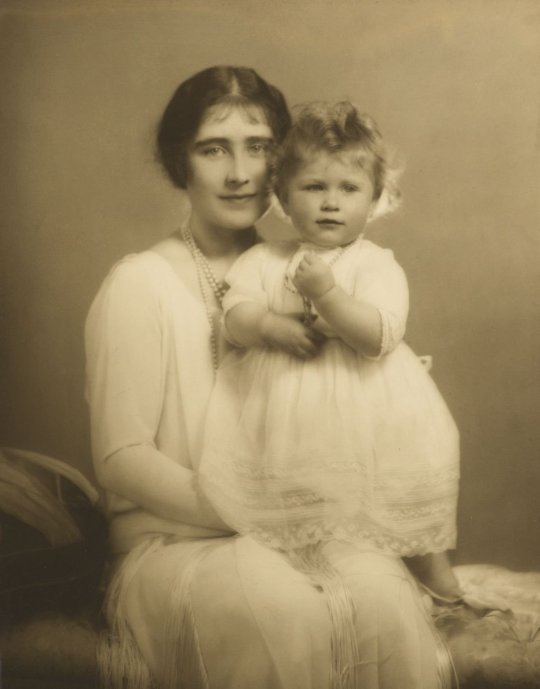

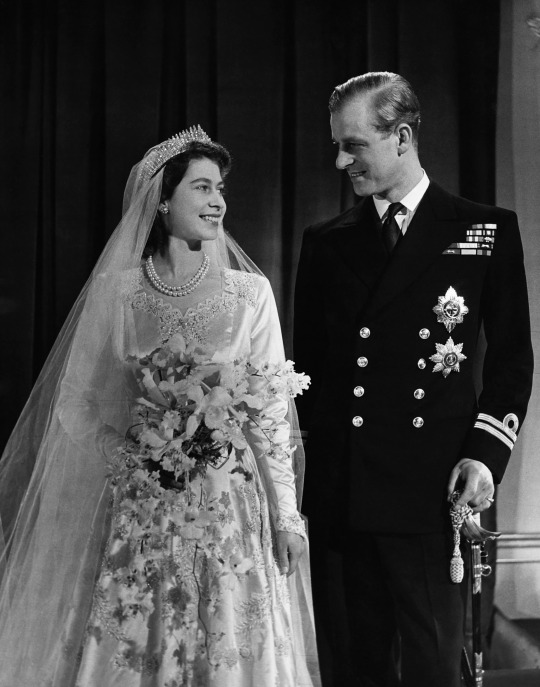
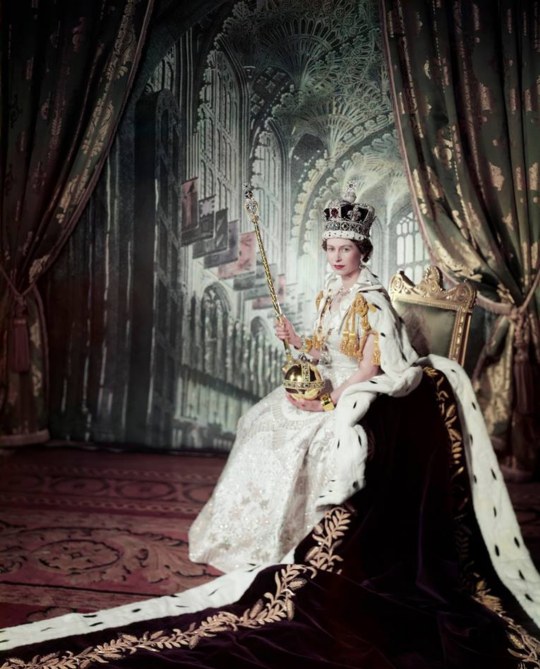
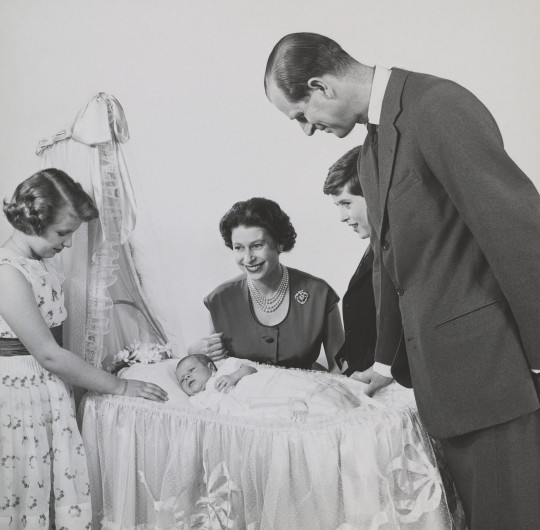
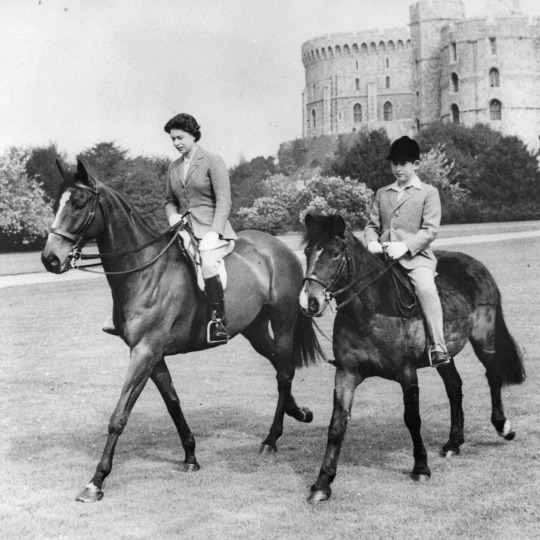



Queen Elizabeth II has died
Queen Elizabeth II, the United Kingdom’ s longest-serving monarch, has died at Balmoral aged 96, after reigning for 70 years.
Elizabeth II (Elizabeth Alexandra Mary; 21 April 1926 – 8 September 2022) was Queen of the United Kingdom and 14 other Commonwealth realms from 6 February 1952 until her death on 8 September 2022.
Her reign of 70 years and 214 days was the longest of any British monarch and the second longest recorded of any monarch of a sovereign country.
Elizabeth was born in Mayfair, London, as the first child of the Duke and Duchess of York (later King George VI and Queen Elizabeth). Her father acceded to the throne in 1936 upon the abdication of his brother, King Edward VIII, making Elizabeth the heir presumptive.
She was educated privately at home and began to undertake public duties during the Second World War, serving in the Auxiliary Territorial Service. In November 1947, she married Philip Mountbatten, a former prince of Greece and Denmark, and their marriage lasted 73 years until his death in April 2021. They had four children together: Charles III; Anne, Princess Royal; Prince Andrew, Duke of York; and Prince Edward, Earl of Wessex.
When her father died in February 1952, Elizabeth—then 25 years old—became queen regnant of seven independent Commonwealth countries: the United Kingdom, Canada, Australia, New Zealand, South Africa, Pakistan, and Ceylon (known today as Sri Lanka), as well as Head of the Commonwealth. Elizabeth reigned as a constitutional monarch through major political changes such as the Troubles in Northern Ireland, devolution in the United Kingdom, the decolonization of Africa, and the United Kingdom's accession to the European Communities and withdrawal from the European Union.
The number of her realms varied over time as territories have gained independence and some realms have become republics. Her many historic visits and meetings include state visits to China in 1986, Russia in 1994, the Republic of Ireland in 2011, and visits to or from five popes.
Significant events include Elizabeth's coronation in 1953 and the celebrations of her Silver, Golden, Diamond, and Platinum Jubilees in 1977, 2002, 2012, and 2022, respectively.
Elizabeth was the longest-lived and longest-reigning British monarch, the oldest and longest-serving incumbent head of state, and the second-longest verifiable reigning sovereign monarch in world history, only behind Louis XIV of France.
She faced occasional republican sentiment and media criticism of her family, particularly after the breakdowns of her children's marriages, her annus horribilis in 1992, and the death of her former daughter-in-law Diana, Princess of Wales, in 1997.
However, support for the monarchy in the United Kingdom remained consistently high, as did her personal popularity. Elizabeth died on 8 September 2022 at Balmoral Castle, Aberdeenshire.
“The Queen is dead, Long live King Charles III”
The Duchess of York with Princess Elizabeth, 30 June 1927 by Marcus Adams (The Royal Collection Trust),
Princess Elizabeth in uniform (1942) by Cecil Beaton (The Royal Collection Trust),
Princess Elizabeth and The Duke of Edinburgh on their wedding day, 20th November 1947 by Sterling Henry Nahum ‘Baron’ (The Royal Collection Trust),
Queen Elizabeth II poses on her Coronation Day on June 2, 1953, in London (Photography by Cecil Beaton),
Queen Elizabeth II with Prince Philip, Duke of Edinburgh and family - 16 Mar 1960 by Cecil Beaton (From the Collection of Queen Elizabeth The Queen Mother),
Queen Elizabeth II and her son, the Prince of Wales, out riding at Windsor Castle I May 18, 1961 (PA),
The Royal coat of arms of the United Kingdom used outside of Scotland,
Queen Elizabeth II Platinum Jubilee 2022 - Platinum Party At The Palace. The Queen Elizabeth II and Paddington Bear having cream tea at Buckingham Palace (BBC Platinum Party at the Palace),
Portrait of Queen Elizabeth II released by The Royal Windsor Horse Show on April 20, 2022 to mark the occasion of her 96th birthday.
#rip#queen elizabeth ii#elizabeth II#queen elizabeth#monarchy#united kingdom#royal#platinium junilee#windsor#markus adams#cecil beaton#theroyalcollectiontrust#paddington#bbc#balmoral#diana#king charles III#princess anne#prince andrew#prince edward#liveunique#history#britsh history#british royality
345 notes
·
View notes
Text
Royal Residences of the Continental Royals part 2 for the anon <3
in this edition: the Spanish, Swedish, Monegasque and Luxembourg
Spanish:
The Royal Palace of Madrid: used for official functions
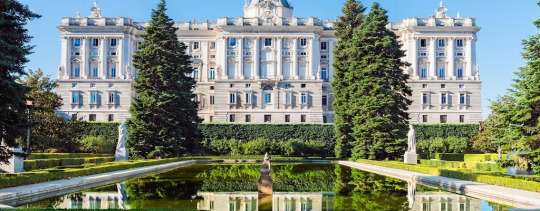
Zarzuela Palace: official residence of Queen Sofia and Princess Irene of Greece (Sofia’s sister)
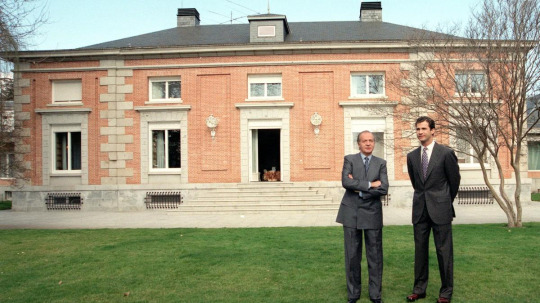
Prince’s Pavillion: located in the same complex of Zarzuela Palace, official residence of King Felipe VI and his family
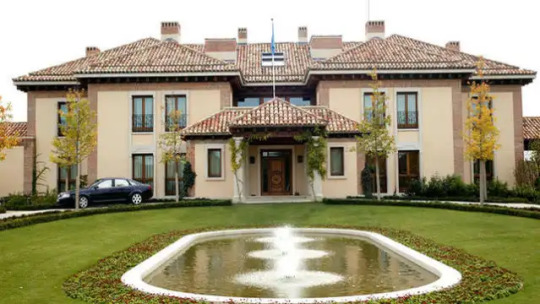
Marivent Palace: official summer residence of the family in Palma de Mallorca; with compounds for all members of the main branch of the family

Son Vent: summer residence of King Felipe, located on the grounds of Marivent Palace
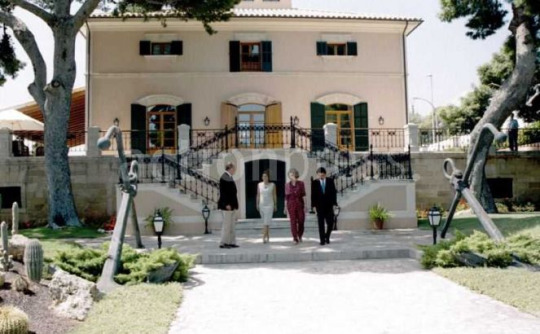
Alcazar of Seville: official residence of the King in Andalusia
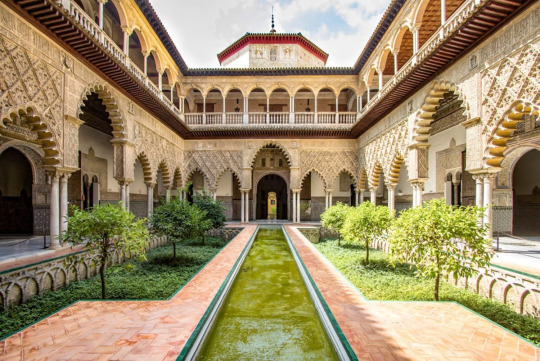
Albeniz Palace: official residence of the King in Catalonia
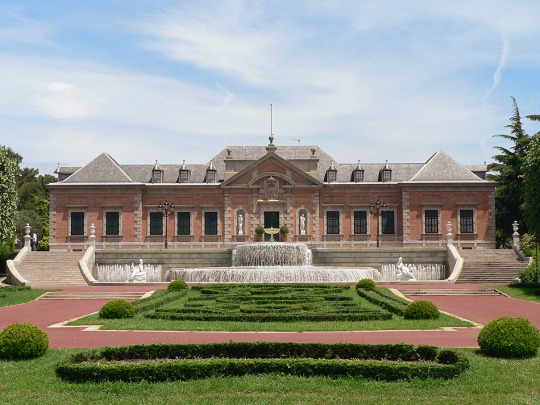
La Mareta: part of Patrimonio Nacional, but not frequently used

Swedish:
The Royal Palace in Stockholm: their official “home” but none of them actually live there; used for official functions

Drottningholm Palace: official residence of the King and Queen
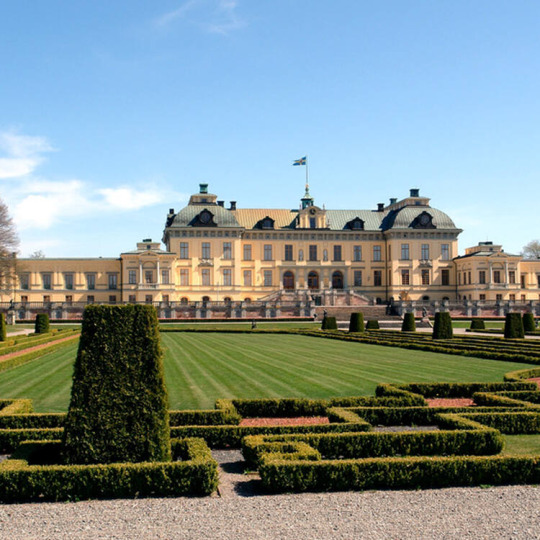
Haga Palace: official residence of the Crown Princely Family
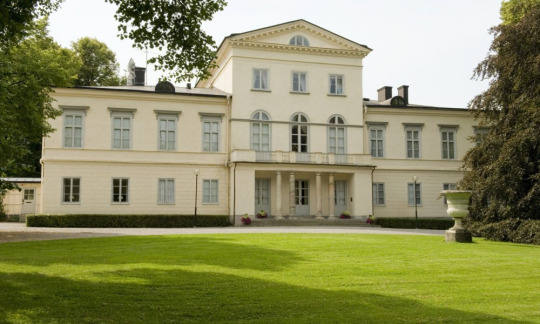
Solliden Palace: summer residence of the family

Stenhammar Castle: summer residence of the King and Queen

Villa Solbacken: primary residence of Prince Carl Philip and his family; previously belonged to Princess Lilian, Duchess of Halland.

Villa Mirage: privately owned villa in St. Maxime, France
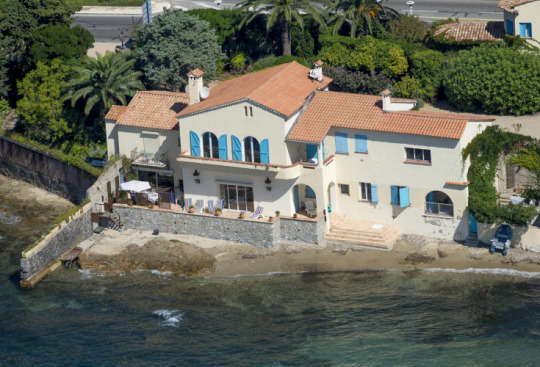
Prince Carl Philip and Princess Sofia’s new shack in Älvdalen:

Rosendal Palace: Carl Philip and Princess Sofia’s former home
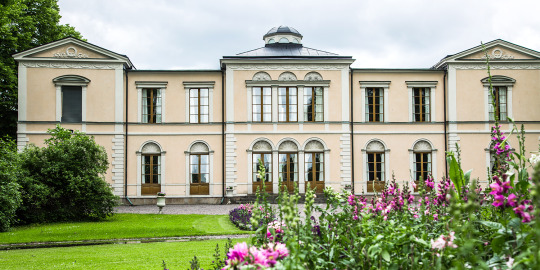
Ökenäs Gård: Prince Carl Philip and Princess Sofia’s farm

Storlien: ski resort where they usually spend Easter

Monegasque
The Prince’s Palace: official residence of Prince Albert II and his family

Villa Clos St. Pierre: home of Princess Caroline

Villa Clos St. Martin: home of Princess Stephanie
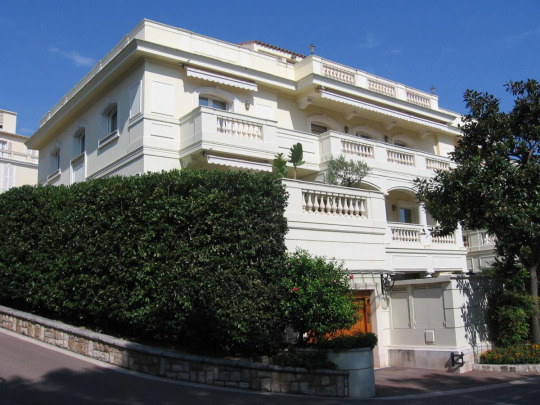
Château de Marchais: private property of the Sovereign Prince (fun fact: this state is 6x the size of Monaco)

Roc-Agel: privately owned villa in France

Luxembourg:
The Grand Ducal Palace: used for official functions

Berg Castle: official residence of the Grand Duke and his family

Fischbach Castle: official residence of Hereditary Grand Duke Guillaume and his family
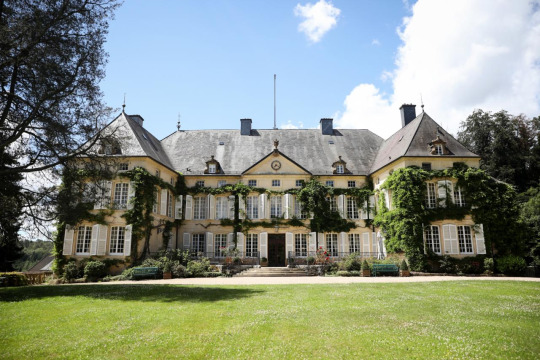
(one more pic bc I'm obsessed @ guillaume and stephanie pls adopt me)
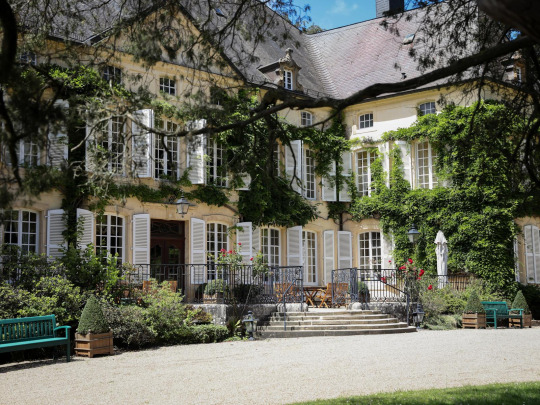
Cabasson: holiday villa on the Cote d’Azur
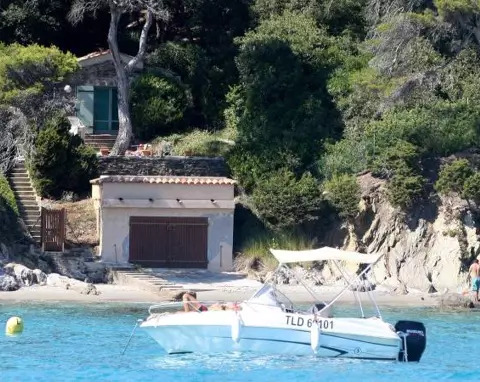
#there ya go anon#seems like cp and sofia have 3 homes not 5 sorry to dissapoint#I felt like a stalker doing this#researching where does x royal live#pls don't worry interpol this was for research purposes only!!!#royal residences#srf#swrf#mpf#lgdf#spanish royal family#swedish royal family#monegasque princely family#grand ducal family of luxembourg
64 notes
·
View notes